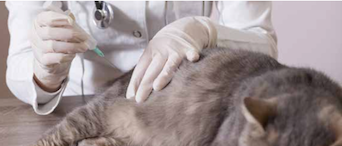Rabies Vaccination May Reduce All-Cause Mortality in Dogs
Does rabies vaccination offer a nonspecific protective effect in dogs and, if so, what might this mean for children?

Rabies vaccination may protect against diseases other than rabies, say the authors of a study published in the latest issue of Vaccine. In a population of free-roaming pet dogs in a low-income area of South Africa, rabies vaccination substantially reduced the risk of death by any cause. The effect was most pronounced in young puppies.
“Existence of a strong nonspecific protective effect of rabies vaccine on mortality in dogs will have implications for the design of dog rabies control programs that aim to eliminate dog-mediated human rabies cases,” write the authors. They also suggest that dogs can serve as animal models for studies of potential nonspecific protective effects of rabies vaccination in children.
The investigators analyzed data collected from 2503 households in a community in Mpumalanga Province, South Africa, from January 2012 through December 2015. The community is low income, they note, and dogs do not commonly receive veterinary care. However, the government conducts rabies vaccination campaigns in which mobile teams go door to door to administer free rabies vaccines to dogs.
The researchers tracked the entry and exit of dogs in each household and recorded each dog’s birth date, sex, breed, and rabies vaccination status (as reported by owners). They analyzed mortality within 3 age classes: 0 to 3 months, 4 to 11 months, and 12 months and older. (In South Africa, dogs under 3 months of age can receive rabies vaccinations.)
The analysis showed that rabies vaccination reduced all-cause mortality by 56% in puppies aged 3 months or younger, by 44% in dogs 4 to 11 months of age, and by 16% in dogs 1 year and older.
Some vaccines affect the immune system in ways that reduce the risk of diseases other than the ones they were intended to prevent, say the authors. For example, studies have suggested that the measles and bacillus Calmette-Guérin vaccines modulate T lymphocytes and innate immune cells to provide nonspecific protection.
Dogs in the study community commonly carry—and likely die from—parasitic and infectious diseases such as babesiosis, ehrlichiosis, canine distemper virus infection, and canine parvovirus infection, write the authors. However, they note that randomized controlled trials would be needed to examine the possible protective effect of rabies vaccination against these diseases.
The authors acknowledge limitations of this observational study. Dogs that have been vaccinated against rabies may be more likely than unvaccinated dogs to receive veterinary care that would decrease their overall mortality. However, because residents of the study community do not often seek veterinary care for their dogs and rabies vaccines are administered for free through another avenue (mobile teams making house calls), the investigators believe that this effect was not substantial. Owners’ reports of their dogs’ rabies vaccination status may also have been incorrect. Finally, the study design did not allow rabies itself to be ruled out as a cause of death in unvaccinated dogs, although the authors estimate that the incidence of canine rabies in this area is low.
“While we do not think that the limitations of the observational nature of our study affect our conclusion of a nonspecific protective effect of rabies vaccine, we recognize that a more rigorous study design is needed to further test the hypothesis,” conclude the authors. They recommend that a randomized controlled field trial be conducted.
Dr. Laurie Anne Walden received her doctorate in veterinary medicine from North Carolina State University. After an internship in small animal medicine and surgery at Auburn University, she returned to North Carolina, where she has been in small animal primary care practice for over 20 years. Dr. Walden is also a board-certified editor in the life sciences and owner of Walden Medical Writing, LLC. She works as a full-time freelance medical writer and editor and continues to see patients a few days each month.